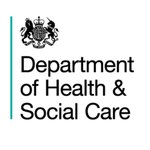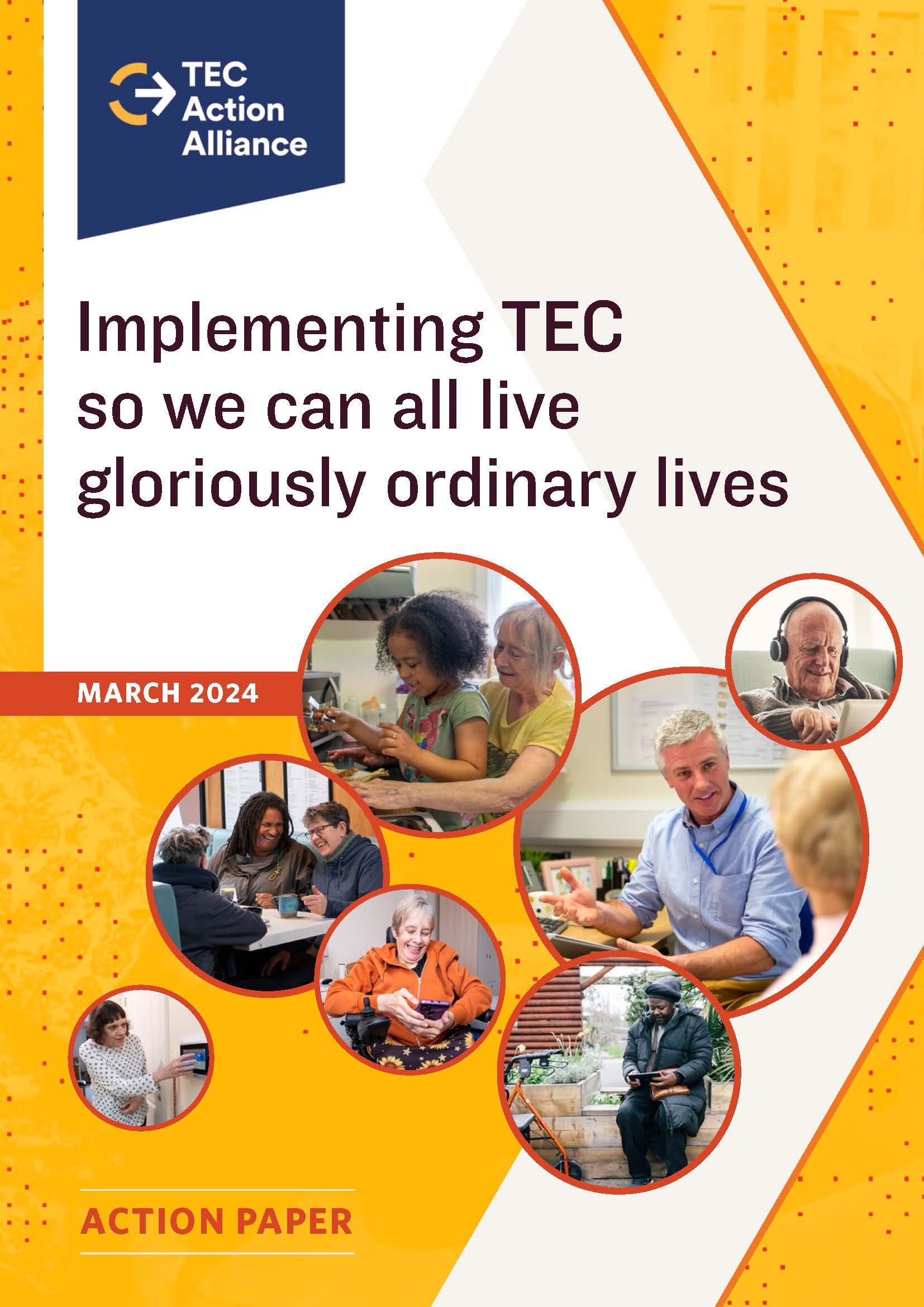
Bridging the Language Gap: ‘Implementing TEC so we can all live gloriously ordinary lives’
05 April 2024
The pivotal research paper, ‘Implementing TEC so we can all live gloriously ordinary lives’, launched at ITEC 2024, and led by social policy researcher Dr Sarah Alden for the TEC Action Alliance, delves into the heart of what individuals truly seek from digital care services and devices.

TEC Action Alliance Action Paper, 'Implementing TEC so we can all live gloriously ordinary lives.
The report highlights the necessity for a unified language that describes TEC, advocating for clear, accessible definitions that simplify digital care for everyone involved—be it individuals, families, or professionals.
People’s lives are rich and complex, and the opportunities for technology-enabled services to make a difference are wide ranging. These services span a broad range of potential technology suppliers and care providers, where each may describe their offer in different terms.
Here, it is too easy to be drawn into jargon and technical language, and a simple understanding of what people want and how these needs will be met can be hard to distil. As a result, it’s confusing for many people to navigate the available TEC options, articulate their requirements, identify the right type of support, find uniform evidence to compare solutions and then make informed, confident decisions.
A family carer interviewed said “I have heard about pendants, but I don’t know about anything else… there is so much of it, it’s hard to know where to start really – I have to sort out my Dad’s [personal] needs…I know someone who is using an app that sounded like it could help me – but I don’t have the time to look at these either, I just stay with the basics."
The TEC Action Alliance commissioned independent researcher Dr Sarah Alden to examine what people want from TEC. From the outset, Sarah found that people wanted to understand and describe technology enablement through a non-technical and common language. You can find her research report here
Dr Sarah Alden built on work begun in the TEC Action Alliance Challenge Paper. Her aim was to explore the myriad ways people use technology to support their lives and she examined 80 research studies, 26 case studies and an additional 23 frameworks and sources of evidence, all of which identify what people who draw on care want, with a focus on both specialist and mainstream services, software and devices. Sarah went on to challenge these findings through extensive interviews and focus groups with people who draw on care and support. Sarah found that many literature sources include the voice of staff and organisations, with fewer views from people who draw on care. Much of the literature also covers types of technology, rather than comparing different ways to meet care and support needs.
An early finding was that the lack of a common language for types of TEC creates major challenges when trying to find suitable support options and draw comparisons. Therefore, it can be very difficult to draw conclusions about the preferences of people and their families or the relevance of different ‘functional’ characteristics of TEC. Sarah challenged this issue further through the focus groups and interviews, held face to face and online, with 42 people from across England and Scotland who draw on care and support themselves, along with their unpaid carers and families. She purposefully selected groups of people whose voices were heard less across the main literature, including young people and individuals from ethnic minorities and lower socio-economic backgrounds.
The report features a diagram reflecting the language that people themselves use when considering their day to day needs and desires, and how technology may enhance this. It shows a common language for describing the functions of TEC:
1.Staying well by being connected to others.
Helping me to stay connected and socialise with family, friends and the community.
Helping me to communicate effectively.
2. Living well in and around the home and community
Supporting me to carry out everyday tasks.
Providing (assistive) support when I need it outside the home.
3.Living safely in and around the home and community
Providing access to help when I need it urgently.
Helping me to move around safely at home.
4.Accessing quality information, advice and support
Supporting access to information and advice when I or my family need it
5.Monitoring and managing own care, health and wellbeing needs
Helping me to monitor and keep track of my health and nutrition needs.
Supporting me to interact with health and care providers.
6.Drawing on proactive support to maintain wellbeing, health and care
Early intervention is available when I experience changes to my physical needs and behaviour.
For a deeper dive into the research, download the full ‘Implementing TEC so we can all live gloriously ordinary lives’ report here
If you have any questions, please contact us at admin@tsa-voice.org.uk






